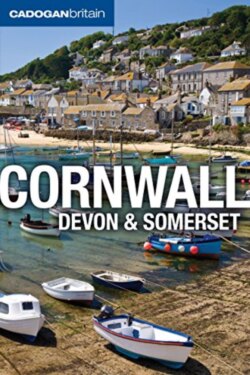Читать книгу Great Book of Spoon Carving Patterns - Joseph Fullman - Страница 16
На сайте Литреса книга снята с продажи.
Rebels and Revolts
ОглавлениеCornwall had never been a willing or eager member of England, but the success and prosperity of the early Middle Ages had kept any revolutionary leanings in check. The mood changed, however, in the late 15th century at the beginning of the Tudor era, as the state became more powerful, more centralized and started extending its influence ever further into the lives of ordinary subjects. A rise in taxation, levied by Henry VII to pay for his war against Scotland, prompted 15,000 Cornishmen to walk on London to protest to the king, lead by Michael Joseph (also known as An Goff, ‘The Smith’, who is today one of the leading heroes of the Celtic Nationalist movement). Henry responded by sending his army to brutally crush the protestors. This created great resentment in the West Country and the perfect conditions for a rebel leader to rally the populace. That leader came in the unlikely form of Perkin Warbeck, who landed at Land’s End three months later claiming to be Richard, Duke of York, one of the ‘princes in the tower’ who most people believed to have been killed by Richard III. He was nothing of the sort, but the Flemish fantasist somehow managed to get the people, by now seething with resentment, flocking to his cause, particularly when he promised to abolish the new taxes.
Warbeck had himself crowned King of England on Bodmin Moor and, supported by a impromptu army of some 6,000 Cornishmen, began marching towards London. But his ersatz reign soon came to an ignominious end. Despite successfully taking Exeter, Warbeck’s would-be regal demeanour faded when he learnt that the real king’s troops were advancing to meet him. He panicked, deserted his own army and was captured a few weeks later, whereupon he was taken to the Tower of London and executed.
More West Country revolts were to follow in the wake of the Reformation and the religious revolution that swept the country in the mid 16th century, which saw monasteries and abbeys dissolved across the region, including at Glastonbury, Bath and Buckfast. The Act of Uniformity of 1549, which insisted that the eucharist be conducted in English rather than the traditional Latin and that churches read from the new Book of Common Prayer, found particular resistance in Cornwall where many did not speak English as their native tongue. However, the resulting Prayer Book Rebellion fared no better than its predecessors with the rebels defeated in Clyst St Mary just outside Exeter.
